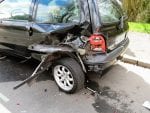How to handle your teenager’s first car accident
For most parents, there are only a few things that worry them more than watching their teenager driving a car on their own. If you have a licensed teenage driver, you understand the worry that comes every time they set out alone in the car.
There’s a risk for all drivers on the road; however, the risk for teenage car accidents is greater. In this article, we go over how to handle your teenager’s first auto accident.
1. Make it to the scene
If possible, you should find a way to get to the accident scene while the investigation and clean-up are in progress. If you’re not in a position to, you should send a co-worker, close friend, neighbour, or relative.
Getting to the scene is essential for several reasons; first, it’ll offer emotional support for your teenager as they need it. Besides that, you’ll also act as a buffer from other individuals involved in the accident since not everyone will be understanding of your child’s mistake.
In addition, getting to the accident scene gives you a better understanding of what occurred. Your child’s emotions will be off the charts immediately after the accident. Consequently, they may fail to remember what transpired; seeing the scene can aid you in reconstructing the accident in your mind.

2. Give emotional support
When you receive the call that your teenager has been involved in an accident, ensure you relay to them that their safety is more important to you. This is important because teenagers can’t confront life challenges the way adults can.
Even though you may be tempted to start patronizing your child by blaming them for their actions, this is counterproductive as it won’t solve the problem. Your main goal after your teenager is in an accident is to reassure them that their safety comes first.
Reassuring your child will aid them in handling the situation better, and they’ll never fail to come to you when they get in trouble. The more you help your teenager deal with the stress of being in an accident, the more prepared they’ll be to handle car crashes in the future.
3. Understand the Parental Liability Act
The parent liability act is meant to encourage parental supervision and compensate victims of torts, and it applies when a child is between 10 to 18 years. Luckily for parents, there’s a cash limitation on this liability. The penalty is limited to $1000 for one victim and $2500 if there’s more than one victim.
Accidents fall under civil cases involving individuals asking for monetary compensation for damage to their cars. These cases are called civil cases because they’re non-criminal, and parents must financially compensate the party harmed by their child’s actions.
4. Ensure they get an accident report
Your teenager ought to know to alert the police when an accident occurs. Police reports are beneficial in the process of claiming insurance. It’s essential to note that reporting an accident doesn’t mean that police will arrive at the scene, especially if it’s a minor accident.
Most police departments are transitioning to online reporting instead of dedicating resources to the accident scene. If the police arrive at the scene, ensure your child notes the officer’s contact information, badge number, and name.
Once the police arrive at the scene, they’ll be able to control the scene, drive away traffic, and interview witnesses to the accident. You should also ensure that your child gets an accident report from the police.
If the police don’t come, they should request a copy of the report from law enforcement or the insurance adjuster handling their claim.
5. Contact the Auto Insurer
Your child should call the car insurance firm from the accident scene so that they can learn how to make a car insurance claim. Your teen will also have to trade insurance details with the other individual so the insurance firms can collaborate.
You should ensure that your child contacts the insurance company as early as possible so that their claim is processed as early as possible. They should ensure they act quickly so they can relay the details while it’s still fresh in their mind.
Whether they think it’s their fault, they should gather all contact details from witnesses, including their phone numbers and names. Your child must gather as much evidence to back up what happened to assist insurers in establishing who was at fault.
If the other driver accuses your child of causing the accident, your teen should inform them that they’ll leave the matter to both insurers to sort out.
6. Find a Car Repair Shop
If the vehicle is damaged, the insurer can suggest a local body shop, and they’ll liaise with the people there to get a quote. Alternatively, you can get a quote from sites such as DingGo.
The downside of going with the repair shop recommended by your insurance is that they usually have contracts that can impose strict budget limitations on the repairs. These budget limitations can compromise the quality of the repair since the shops can sometimes use non-OEM (Original Equipment Manufactured).
Help your child find the best repair shop by talking to family members and friends and establishing which ones have the best reviews. Then talk to these repair shops about the repairs for your car and get an estimate from each shop; however, you shouldn’t automatically select the lowest estimate.
Bottom line
Accidents are bound to happen with teenage drivers; however, well-prepared, involved guardians can mitigate the stress that comes with them. The essential thing after an accident is your child’s well-being; you can replace the car, but not your child.
![[AD] ✨ Festive magic for local families in the heart of Guildford ✨
We had the loveliest evening exploring the @guildfordilluminate light trail at Guildford Castle
The trail takes around 30–40 mins
with cosy stops for hot chocolate and toasting marshmallows, it’s a gorgeous Christmas activity for Surrey families.
It’s on until 4th January and makes the perfect festive plan:
🛍️ Christmas shopping in town
✨ The light trail
🍽️ Finish with dinner in Guildford
If you’re looking for a magical, stress-free festive outing with the kids — this is one to add to your Christmas list
📍 Guildford Castle, Castle St, Guildford GU1 3SX
#GuildfordWithKids #SurreyFamilies #ChristmasInSurrey](https://suburban-mum.com/wp-content/uploads/2018/09/589257185_18566118850016840_4432952740767953046_n-180x320.jpg)
![[AD] We went to the newly opened Cha Sha Kingston a couple of weeks ago, and wow — taste bud adventure unlocked! The boys devoured the masala fries and chicken tikka rolls, while we couldn’t get enough of that epic kebab butter curry 😍🍛.
It’s amazing value for food this tasty (and everyone left happy and VERY full!).
Delicious food, vibrant vibes and incredible value — the perfect combo for your next meal.
📍Cha Sha Kingston
43 Surbiton Road, KT1 2HG
🌐 chasha.co.uk
Other Cha Sha locations in Birmingham, Ilford, Southampton and Wembkey
#ChaSha #ChaShaKingston #KingstonEats #FoodieFinds #UKFoodie #FoodReview #KingstonUponThames #FamilyEats #FamilyDining #FoodieKids](https://suburban-mum.com/wp-content/uploads/2016/02/574770541_18560351146016840_6855048070839528040_n-180x320.jpg)

![[AD] We’re a cricket-mad family, so we’re buzzing that @thehundred is back this August! 🏏🔥
To get ready, M tried out the official FREE Activity Pack — and it’s brilliant! 🙌
Packed with fun games, creative challenges and sporty tasks, it’s perfect for getting kids hyped whether you’re at home or on the go.
👉Download yours now (link in bio)
@londonspirit @ovalinvincibles #EveryMomentCounts #TheHundred
#EnglandCricket #CricketFamily #TheHundredCricket #LondonBloggers #Cricket #CricketIsLife #kidsfun](https://suburban-mum.com/wp-content/uploads/2022/11/505472555_18531279601016840_7092520074819907569_n-180x320.jpg)



![[AD - Press visit]
We enjoyed the glorious sunshine this weekend with a trip to Brighton. We went on the @brightoni360official which is right by the sea front.
The i360 pod take a slow journey up, allowing you to take in views across Brighton and the South Downs 450ft above ground. There’s a bar inside with drinks and snacks available to purchase and the experience lasts 25 minutes.
Afterwards, we headed to the open air roller rink for a roller skating session!
The roller rink is:
⭐ Suitable for over 5s
⭐ £6.50 if you have your own skates or £9.50 if you need to hire them
⭐ 45 minutes per session
Full details to visit the i360 + skating
📍 Brighton i360, Lower Kings Road, Brighton BN1 2LN
🚗 Parking nearby (we parked in the Regency Square Car park)
🎟️ Prices start from £25.40 for an adult and £16.90 for a child
🕐 Opening hours are currently Sun-Fri 10.30am-18.30pm and until 19.30pm on Saturdays
☕️ Bar inside the i360, cafe and gift shop
Book tickets here:
https://tickets.brightoni360.co.uk/tickets/?_ga=2.195305772.1869001490.1689671753-1757164059.1689671753/#events?eventid=157](https://suburban-mum.com/wp-content/uploads/2015/04/417980235_313576471048632_3682382982231216432_n.jpg)

![[AD] ***Summer of fun at Barracudas Activity Camps!****
There is plenty for kids to do at @barracudas_activity_day_camps
From Tennis, Archery, Swimming, Motor Sports and more you can be sure that there will be something for kids aged 4.5-14. ⚽🏈🥅🎾🏓🏎️🏹🏊♂️🏉
You can book on a day by day basis - so it can fit in with any other days out/activities you have planned and there are early drop off and late pickup options available. Barracudas are also Ofsted registered so you can use your Childcare Vouchers too.
⭐⭐⭐Get £20 off a week or £4 off a day using my discount code: MARIA20⭐⭐⭐
#BarracudasActivityDayCamp #BarracudasActivityCamp #BarracudaAmbassadors #SummerHolidays #SchoolHolidays #Summer2023 #SummerCamp #DayCare #Camp #KidsCamp #surreymummy #surreymums #SummerOfFun #ActivityCamps #HolidayCamps #Childcare #SchoolHolidays #schoolholidaycamps](https://suburban-mum.com/wp-content/uploads/2024/07/353583570_625625966167953_545896259645102575_n.jpg)



![[AD] We have some super exciting news...we have been chosen to be Laser Quest Ambassadors, and the boys are over the moon!
We are really lucky that our local Laser Quest (@laserquestkingston) is just around the corner from us. It means we can pop in of a weekend or anytime during the school holidays, and with summer just around the corner, I know Laser Quest will be one of our go-to places for some family fun.
As well as games of Laser Quest, there are also VR experiences and arcade amusements too. To find out a bit more about how Laser Quest works, you can read my blog post: https://www.suburban-mum.com/laser-quest-kingston/ (clickable link in bio)
Don't forget to keep an eye out for our Laser Quest posts - I'm going to be giving away two family passes to use at Laserquest Kingston!
If you can't wait and want to head down to Laser Quest to try it out, use the code SUMMER30 for 30% off your booking. The code is valid from now until the end of August 2023 and can be used on Laser Quest games and birthday party bookings.
#LaserquestAmbassador #Laserquest #LaserquestKingston #ActivitiesForKids #FamilyFun #DaysOutWithKids #Lasertag #LaserquestVR #Kingston #ThingsToDoInKingston #SurreyFamilyDaysOut #ThingsToDoWithKids #RainyDayFun #SurreyMummy #SurreyLife #LifeWithKids #LifeWithBoys #familyfunday](https://suburban-mum.com/wp-content/uploads/2015/04/353230107_797358078406942_2405522556733455165_n.jpg)

![[AD] The sun has finally made an appearance and the boys have been making the most of it by spending it
in the garden.
They’re go-to is always football and they’ve been trying to improve their aim and accuracy with the new Messi Foldable Footlball goal from the #MessiTrainingSystem range.
I love the fact the goal is foldable, making it easy to store away when not in use. It is also lightweight so you can effortlessly pack it up and take it to the park or to a friend’s house.
The Messi Foldable Football Goal retails at £36 and can be purchased from @argos
You can read my full review here: https://www.suburban-mum.com/messi-foldable-football-goal/
#TrainLikeMessi #FoldableFootballGoal #FootballSkills #OutdoorFun #LionelMessi #LeoMessi #FootballAtHome #OutdoorKids #JustGetOutside #OutdoorsAndFree #ScreenFreeKids #WhateverTheWeatherKids @flair_gp](https://suburban-mum.com/wp-content/uploads/2015/04/341194882_615024710178056_41977149395989448_n.jpg)

![[AD] We are absolutely thrilled to announce that we are Barracuda Ambassadors again this year.
With Easter just around the corner, the boys were sent the @barracudas_activity_day_camps new camp kit in preparation for the school holidays.
There’s a wide range of activities for kids aged 4.5 - 14 including Tennis, Archery, Basketball, Arts & Crafts and more.
If you like the sound of Barracudas, find out more over on their website. You can also save £20 a week or £4 a day, using my discount code: MARIA20](https://suburban-mum.com/wp-content/uploads/2024/07/336812306_765234558514317_685553691647241974_n.jpg)





